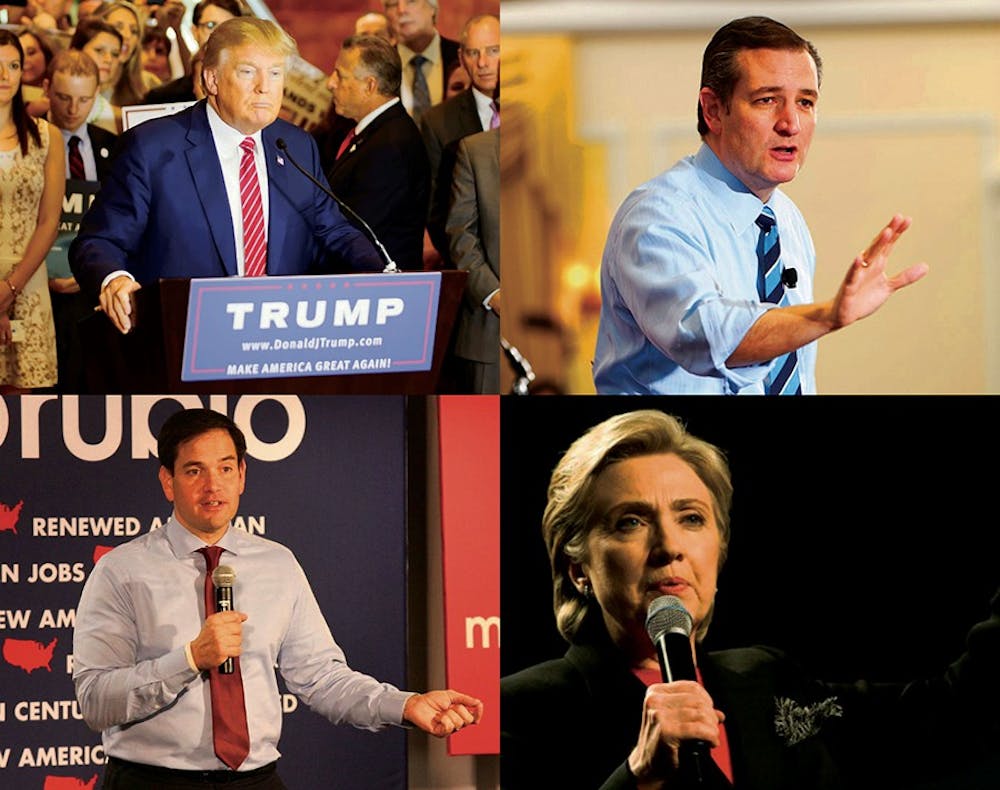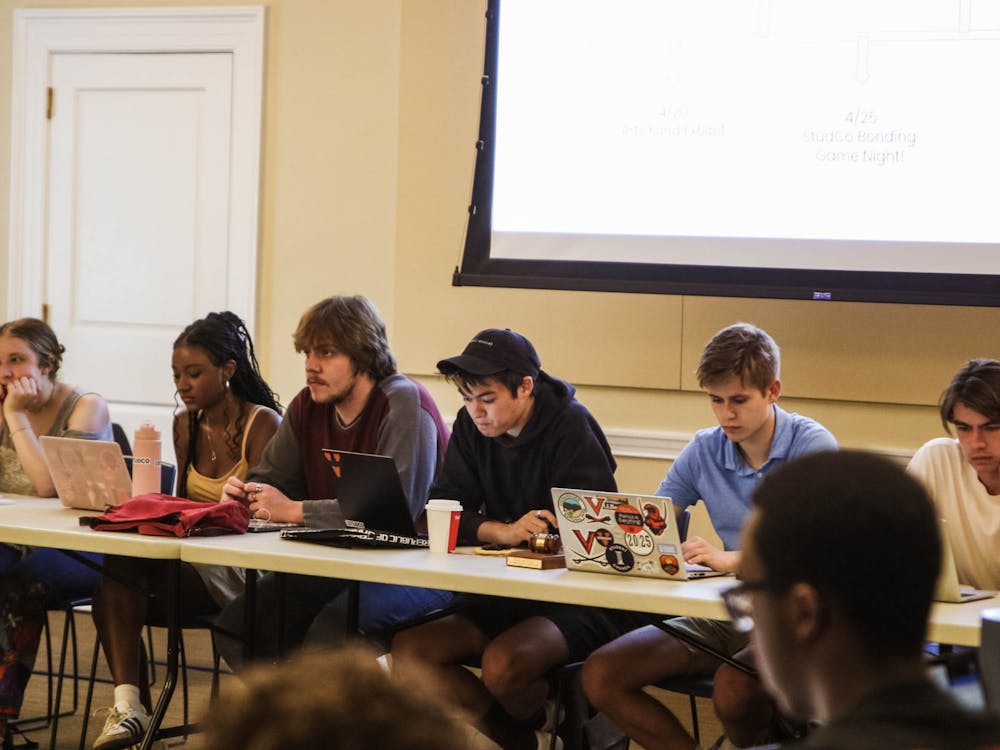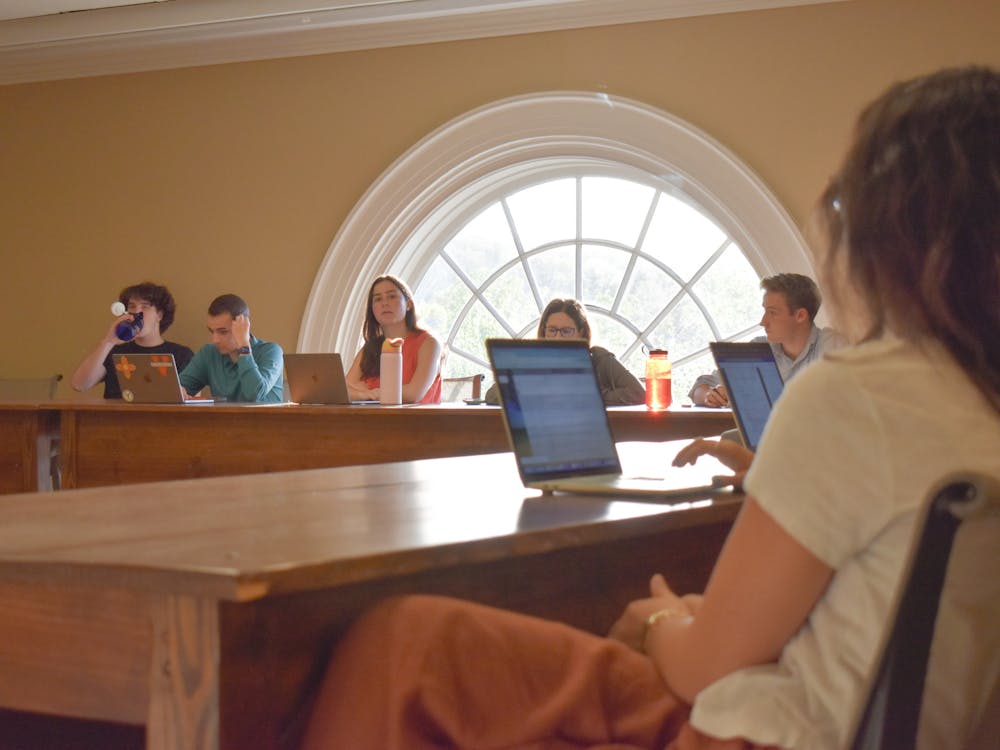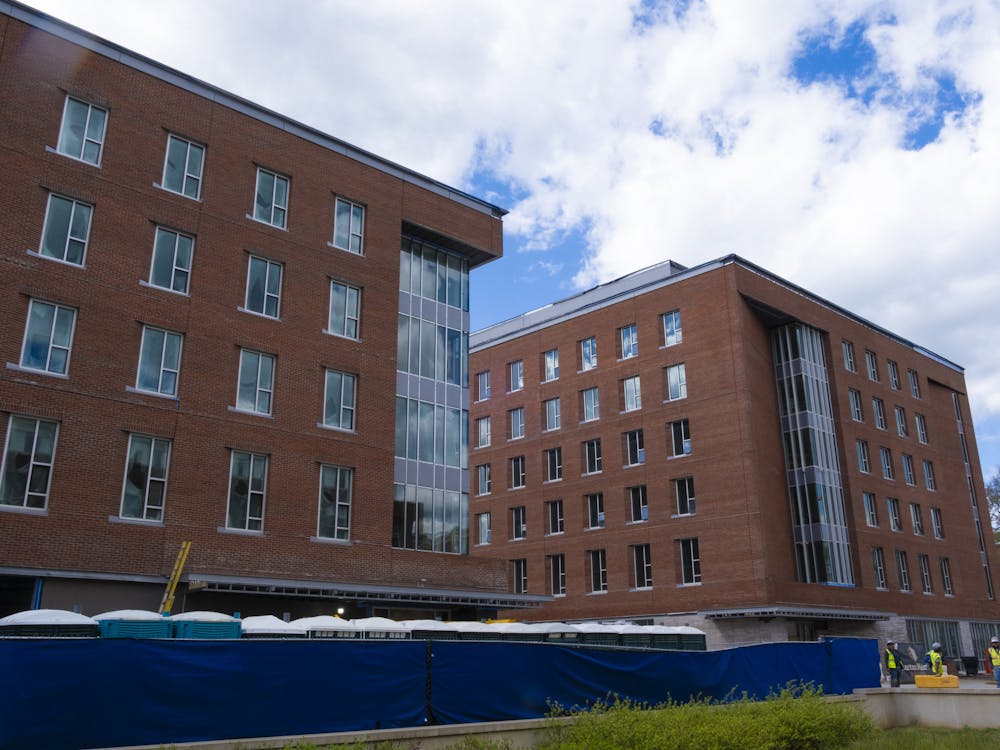After losing his home state of Florida to Donald Trump in the March 15 primary, Sen. Marco Rubio (R-FL) announced the suspension of his campaign for the GOP nomination.
This announcement reduces the number of candidates remaining for the GOP nomination from four candidates to three, but it may allow hope for Gov. John Kasich (R-OH) to gain more supporters.
Second-year College student Uma Mengale said with Rubio giving up a large number of delegates, Kasich is now the most moderate of the remaining GOP candidates.
“I’m hoping for an upward turn for Kasich especially with his win in Ohio,” she said. “He’s a viable option for the GOP establishment and most moderate conservatives.”
Mengale and third-year College student Darby Hobbs recently conducted a Millennial Caucus among University undergraduates to survey students’ opinions.
To keep the survey academically focused, Mengale said she and Hobbs sent the survey to a listserv of students who they believed would provide an educated response. They received about 400 responses from the University Democrats, College Republicans, politics majors and students from the Batten School.
The survey found millennials were in support of Rubio for the Republican Party and Sen. Bernie Sanders (D-VT) for the Democratic Party. However, with Rubio out of the race, Mengale said she and Hobbs are considering another survey to see where students stand with Rubio’s exit.
However, University Democrats President Sam Tobin, a third-year College student, does not see a bright future for Kasich.
“Trump has 45-46 percent of the delegates right now — I have a difficult time seeing him being that close and getting anything less than the nomination,” Tobin said. “It’s going to be difficult for someone like Kasich to steal that.”
Even with talk of a possible contested GOP convention, Tobin said the future looks bleak for both Kasich and Sen. Ted Cruz (R-TX).
“Kasich only won Ohio — he does have some fans, but I don’t see him becoming president,” he said. “Cruz, I don’t know. he could win the nomination. If it was just Cruz and Trump in the beginning, maybe, but now I don’t see it.”
College Republicans President Jay Boyd, a fourth-year College student, said it is hard to predict what will happen in the GOP nomination contest.
“It’s hard to predict if there will be a [contested] convention,” Boyd said. “There’s several winner take all states left and it will be hard — results yesterday made it harder to think there will be a [contested] convention.”
Boyd also said the party will eventually need to unite behind one candidate.
“The rhetoric right now is slightly concerning,” Boyd said. “If the Republicans do not give the [nomination] to Trump, 7.5 million voters will be really mad. They have to walk a tight line as it is a democracy.”
In regards to a possible Rubio 2020 campaign, Boyd said it is unlikely.
“By running for president here, he lost his senate seat,” Boyd said. “He has name recognition now, but maybe he might want to wait until 2024.”
On the Democratic side, former Secretary of State Hillary Clinton emerged with a huge victories in Florida, Ohio, Illinois and North Carolina March 15.
Geoffrey Skelley, Center for Politics media relations coordinator and associate editor of Sabato’s Crystal Ball, said Clinton will most likely secure the Democratic nomination.
“At this point, Hillary Clinton is almost a shoo-in to be the Democratic nominee, barring something outside the race happening, such as a federal indictment regarding her private email server,” Skelley said.
Skelley said Trump is the “most likely nominee” for the Republicans, but it will be a challenge for him to amass the delegates needed for an outright majority by the end of the primary and caucus season.
“It will be difficult for Trump to clinch a majority of the convention’s bound delegates by the time the primaries and caucuses conclude on June 7,” Skelley said. “However, if he’s relatively close to 1,237 delegates, he may be able to get some of the unbound delegates to support him or perhaps a deal will be worked out among Trump, the other campaigns, GOP leaders and state leaders.”
Skelley said a contested convention will only occur if a candidate cannot get a majority of delegates’ support on the first ballot at the Republican National Convention in July. In such a case, a majority of delegates would become unbound on the second ballot and be “free agents” to support the candidate of their choice.
“Should no candidate win a majority on the second ballot, an even larger number of delegates would be freed from their candidate commitments,” Skelley said. “At that point, it’s anyone’s guess what could happen.”
Trump currently has 673 delegates, while Cruz follows with 411 delegates. Kasich has 143 delegates.
On the Democratic side, Clinton has 1,139 delegates and Sanders has 825 delegates. A candidate needs 2,383 delegates to win the Democratic presidential nomination.





